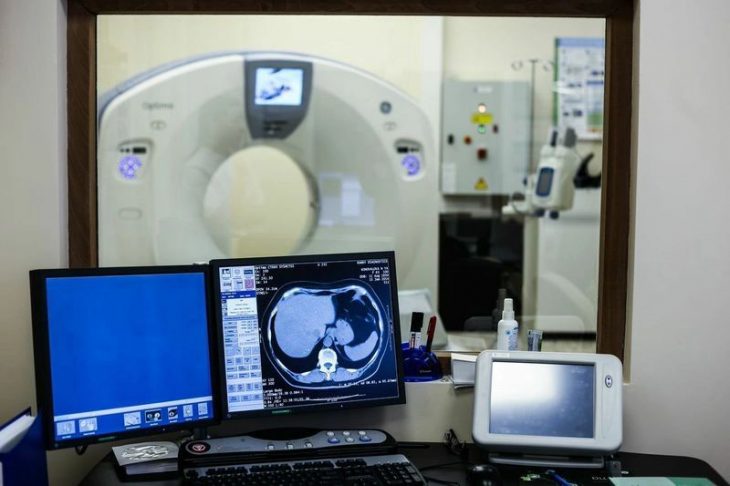
Digitalization in Medicine
The development of modern medicine cannot be imagined without the use of information technology. One of the first branches of medicine to actively introduce digitalization into itself was laboratory diagnostics. Digital technologies have made it possible to completely restructure the work of the laboratory to get away from “routine work”, to increase the accuracy and speed of issuing results. At the same time, the active pace of digitalization has led to a significant reduction in jobs in this particular industry. According to some reports, the number of paramedics and laboratory assistants has decreased by 20%. Other branches of medicine experienced little to no contractions. The transition to an electronic version of outpatient records, the creation of a unified system for standardizing diagnosis, the development of applications for self-control, all this requires the participation of qualified medical personnel and is impossible only with the use of artificial intelligence.
Undoubtedly, digitalization in the healthcare sector will significantly simplify the work of a doctor, will ensure that patient data and test results are not lost or destroyed. Quality control of medical care will be constantly improved. The interaction between the doctor and the patient can take place at a distance using telemedicine platforms. All this will make medical services more accessible. But we can definitely say that the loss of jobs in medicine in general will not be significantly significant.
Consider the opinions of experts on a given topic. Diagnosis and treatment of a patient are non-linear processes. They require a creative approach, the ability to solve the patient’s problems, to link the symptoms of diseases into single syndromic complexes. Patients and their lifestyles have differences, diseases have the same feature. Not one case is the same, each requires an individual approach, meaningful awareness of the problem and specifics. Artificial intelligence will certainly be able to collect patient complaints, laboratory diagnostic data, objective examination data into a single database and, based on clinical recommendations, will be able to offer the doctor the most modern method of examining and treating a patient. But artificial intelligence will not be able to interpret the complex, multi-layered tasks associated with the psyche. The interpretation proposed by artificial intelligence, the appointment of treatment and the management of the patient will always remain human territory, the territory of the doctor. Not the last role in the discussion about the impossibility of replacing a medical worker with artificial intelligence is expressed by such a science as deontology. Empathy is critical in the doctor-patient relationship. The patient’s trust in the doctor directly affects the patient’s well-being, adherence to prescriptions, the implementation of the treatment plan and further recovery. However, the digitalization of the industry is necessary for healthcare no less than for other industries. Doctors and nurses perform many repetitive tasks every day. According to a study conducted in the United States, medical specialists spent more than 25% of their working time on paperwork. Unfortunately, in Russia these figures can reach 45%. This part of the work should be automated in the first place.
Undoubtedly, digitalization will bring great benefits to the development and improvement of laboratory and diagnostic methods for examining a patient. For example, the introduction of new equipment for X-ray diagnostics, which is capable of combining high-quality images with a system for classifying and differentiating diagnoses, made it possible to reduce errors by 85%.
It is clear that more complex digital medical solutions will require the competence of highly qualified specialists. The big advantage of using artificial intelligence in healthcare may be the only affordable way to provide quality healthcare to more than 6 billion people around the world. Using the example of the novel coronavirus infection pandemic, we were able to actively apply one of the digitalization industries, namely telemedicine.
Technology should never be against people, because all innovation should serve a purpose – to help. The result of digitalization should be cooperation between people and technology. In my opinion, the most effective option is the combination of human communication, participation, empathy, rejection of routine, paperwork and the help of artificial intelligence in providing new cutting-edge knowledge, research, clinical protocols.
- Learning and Growth Mindset - 13th September 2024
- Another successful meeting – IBSEN meets XAMK in Kouvola, May 2024 - 16th May 2024
- Blending and joining the Finnish work life - 8th December 2023
